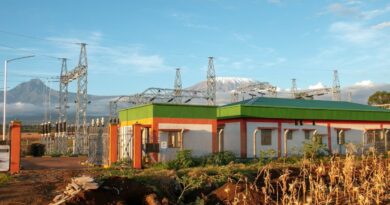World Bank warns: Electricity prices set to rise if Kenya Power loses more customers

The World Bank has warned that electricity prices will increase if more customers continue to ditch Kenya Power due to high electricity bills.
This has been revealed by the International Monetary Fund (IMF) in a report about its ongoing multi-year loan programme with Kenya. Kenya Power currently has 9.7 million customers, having added 447,251 customers to the grid in the year ended June 2024.
While the company continues to add customers, the additions are mainly domestic and small businesses. It is however large customers that are posing a threat to the utility as some of them ditch the company in favour of generating their own electricity due to high power costs.
It is on this backdrop that the World Bank has warned about the impact of the country’s move to introduce open access of the grid to private players, opening up the sale of electricity which has been monopolized by Kenya Power for decades to competition for the first time.
The concept of open access was introduced by the draft Energy (Electricity Market, Bulk Supply and Open Access) Regulations, 2024 which were published by the Energy and Petroleum Regulatory Authority (EPRA) at the beginning of the year.
The regulations will be enacted next year, according to State officials. Under the regulations, private power distributors can join the market and compete with Kenya Power.
On the open access draft regulation, the World Bank has cautioned that this could have macro-fiscal implications especially for KPLC that has already contracted long-term, fixed power purchase agreements with several independent power producers or for retail consumers who may face higher tariffs due to the possible end of cross-subsidization if the larger, more lucrative customers were to leave KPLC.
imf
The reservations by the World Banak arise from the fact that competition from private distributors will erode Kenya Power’s revenue when it already has long-term Power Purchase Agreements (PPAs) with power producers.
Further, the lender is worried that should more large power customers continue to leave Kenya Power, it could force the government to stop subsidizing the cost of electricity for low- income earners.
The government currently subsidized electricity through the cheaper lifeline tariff which is for customers who use up to 30 units on average per month.
The deficit from this subsidy is recovered from larger power buyers who are charged a higher tariff.
Cabinet approval of the net metering regulations, electricity market, bulk supply, and open access regulations, including rates determination methodology to promote energy efficiency, electricity wheeling, and distributed renewable power generation in the residential, commercial, and industrial sectors, including Special Economic Zones and Industrial Parks is one of the IMF’s reform measures for the Kenyan government.
info@theenergyreview.com
Discover more from THE ENERGY REVIEW
Subscribe to get the latest posts sent to your email.


